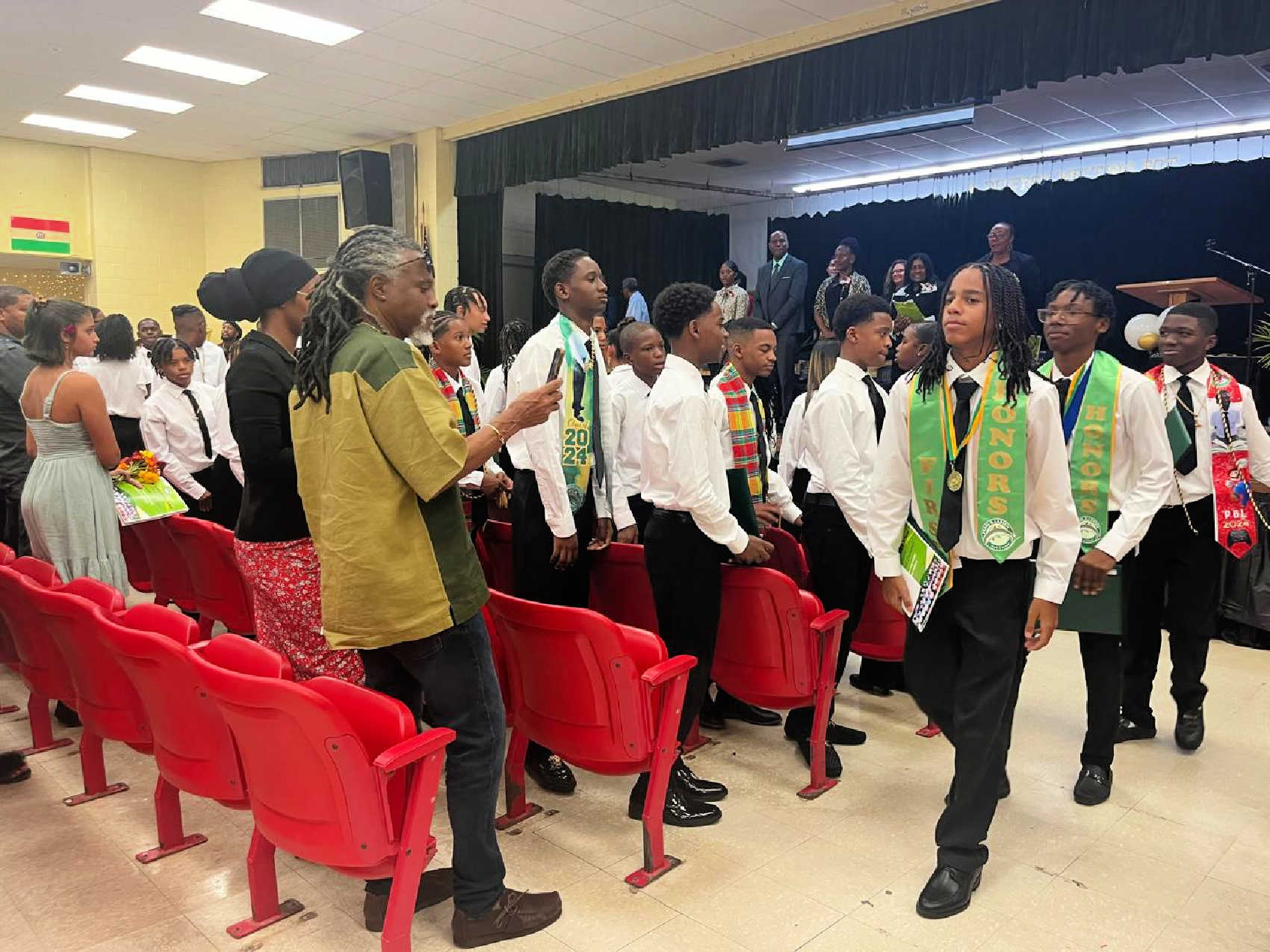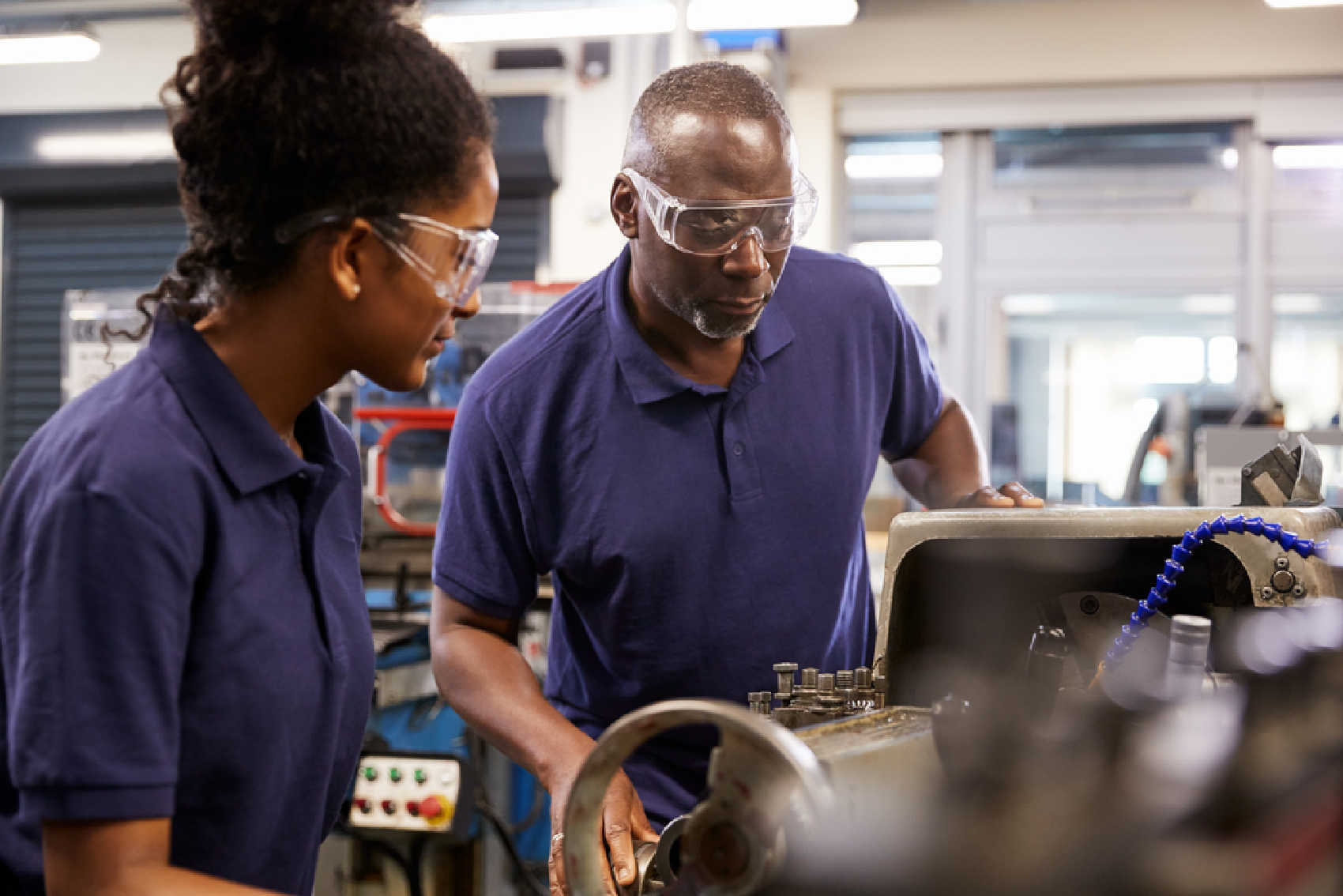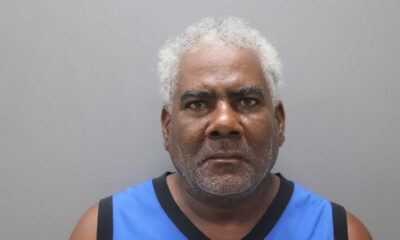Education
UVI Empowers Future Female Leaders to Tackle Social Issues in Annual Conference and Competition

At the University of the Virgin Islands (UVI), the College of Liberal Arts and Social Sciences successfully hosted its second annual “Young Ladies Learning to Lead” Conference and Competition. This innovative program is designed to empower high school girls from across the territory by equipping them with essential knowledge and skills for both personal and professional growth. The initiative also serves as a platform for them to showcase their leadership capabilities.
The event attracted a diverse group of female students from various high schools who initially took part in a conference dedicated to the development of self-esteem, empathy, authenticity, and an array of leadership styles. They were also trained on effective teamwork, public speaking, and preparation for academic pursuits beyond high school.
Following the conference held in late February, participants were given a month to prepare for the competition. The challenge required them to apply their newly acquired skills to devise solutions for social issues affecting the Virgin Islands, as highlighted by event committee chair Anna Clarke. The criteria stipulated that the social problems chosen should be addressable through the collective effort of the participants or the wider community, without expecting government intervention, and aimed at achieving tangible results.
On March 27, during the competition, contestants presented their proposals to a panel of judges. The standout presentation was by Savanna Holley of Good Hope Country Day School, who focused on combating youth apathy towards environmental concerns. She outlined significant issues such as the excessive use of single-use plastics, waste management challenges, and the pressing need for more accessible recycling options, coupled with the overarching threat of climate change.
Holley proposed a comprehensive strategy to engage and educate young people through community service, solution-focused discussions, educational clubs, and formal schooling. She emphasized the importance of fostering a sense of individual and communal responsibility towards the environment, predicting that such educational and empowerment initiatives would lead to heightened environmental activism among the youth.
The judges praised the high quality of all presentations, awarding Nadjah Jn Phillip of Gifft Hill School second place for her examination of social media’s impact on Virgin Islands teens, and Ne’Keyla Amey of Charlotte Amalie High School third place for her insights into dismantling the ‘who you know’ mentality for a more unified society. Donnalee Isaac of Ivanna Eudora Kean High School received an honorable mention for her exploration of abortion’s effects on VI teens.
The program invites 10th, 11th, and 12th-grade female students interested in next year’s conference and competition to contact Dr. Clarke for more information. This initiative underscores the University of the Virgin Islands’ commitment to fostering leadership and addressing community issues through youth engagement and education.
Education
USVI Elementary and Middle Schools Celebrate Student Promotions at Annual Ceremonies

Graduation season has begun across the U.S. Virgin Islands, with several schools hosting promotional ceremonies to celebrate their students’ academic achievements and transitions. On Monday, St. Croix’s Claude O. Markoe, Pearl B. Larsen, and Alfredo Andrews Schools held their ceremonies, while Jane E. Tuitt Elementary School and Yvonne E. Milliner-Bowsky Elementary School did the same on St. Thomas.
The communities of Pearl B. Larsen and Claude O. Markoe Schools gathered to mark their students’ transitions to high school and middle school. These ceremonies highlighted the students’ past successes and anticipated their future academic journeys.
Claude O. Markoe School celebrated the promotion of 47 sixth-grade students to middle school at the St. Croix Educational Complex High School. Meanwhile, Pearl B. Larsen hosted its event in its home auditorium, where 47 eighth-grade students were honored as they prepared to enter high school.
Alumni from both schools delivered keynote speeches, sharing their experiences and memories from their own school days. Jayda Brown, a Pearl B. Larsen alumna and keynote speaker, recounted how her eighth-grade promotional ceremony had been held virtually. As she prepares to graduate from St. Croix Central High School, Brown reflected on the resilience and adaptability gained during that time. “We may have missed out on the traditional ceremony, but we gained something far more valuable: resilience, adaptability, and the knowledge that we can overcome any obstacle life throws our way,” she said, encouraging the students to carry these skills forward.
Pearl B. Larsen also recognized its top honors students, Nyack Nathaniel and Zayden Turner, for their academic and personal achievements. Assistant Principal Anna Marie Gordon praised them as “intelligent, athletic, [and] humble,” and as examples of perseverance and passion. “I’m so proud that they are young men leading the class,” she remarked.
Dr. Etta Lee Pickering-Mitchell, an alumna of Claude O. Markoe School, reflected on the influence of her elementary school teachers on her academic journey. As the Assistant Principal of Eulalie Rivera School, she addressed the promoted students, emphasizing that their “real work begins now.”
While Claude O. Markoe did not designate first or second honors students, the school celebrated another significant achievement: all six students recommended for the St. Croix Educational Complex High School’s magnet program were accepted. “I’m so happy to hear that all the students who participated in the interview process were able to get accepted. That speaks volumes about the teachers’ dedication to preparing students for the future,” said Dr. Pickering-Mitchell.
Dr. Pickering-Mitchell expressed her optimism for the future, stating, “I love to celebrate the small successes, and I look forward to seeing what they’re going to do in the future.”
In her closing remarks, Pearl B. Larsen’s Principal Joanna Brow commended the promoted class for their exemplary behavior, noting, “They are one of our best eighth-grade classes,” and praised the students’ collective achievements to the gathered parents.
Education
Career and Technical Education Faces Hurdles Due to Underfunding and Agency Delays, Board Reports

The Board of Career and Technical Education (CTE) is facing significant challenges in fulfilling its mandate due to chronic underfunding and delays from partner agencies. CTE Chair Joane Murphy highlighted these issues during a testimony before the Committee on Education and Workforce Development on Thursday.
Ms. Murphy stated that the board’s main responsibilities include establishing, maintaining, and supervising vocational schools. However, despite being legally empowered to do so, the board lacks the authority to enforce these provisions effectively.
A key issue is the board’s reliance on other agencies for critical aspects of its mandate. The Department of Education is tasked with developing curricula, but the CTE board has not been kept informed about curriculum development relevant to its mission. “The board has not yet received those documents for further scrutiny and ultimate approval,” Ms. Murphy explained, noting a two-year delay. This lack of enforcement capability hampers the board’s ability to fulfill its duties.
The information gap from the Education Department impedes the CTE board’s efforts to attract more participants to its programs, which aim to enhance career prospects for youth and adults. The board’s plans include restructuring school hours to integrate workforce experience in the mornings and academic classes in the afternoons. They also propose breaking down two-year programs into smaller, more manageable segments. However, without the ability to enforce its mandate, these plans remain theoretical.
Ms. Murphy emphasized the need for additional funding. Federal Perkins Act funds can no longer be used for travel expenses, making it difficult for students to attend important conferences that offer scholarships, certifications, and networking opportunities.
Ms. Murphy also criticized the V.I. Legislature for its role in the lack of progress on CTE initiatives. Former Senator Genevieve Whitaker’s Bill 34-0378, intended to establish the Career and Technical Education Training Fund, failed to advance beyond its initial committee hearing in November 2022. This fund would have provided direct financial support to the board. Committee chair Marise James pledged to revisit the proposal during Thursday’s hearing.
Despite these challenges, Ms. Murphy affirmed the CTE Board’s commitment to maximizing available resources and collaborating with stakeholders to positively impact the career and technical education landscape.
Education
U.S. Territories Highlight Colonial Educational Challenges Impacting Local Identity

At a recent gathering in the U.S. Virgin Islands, experts from various U.S. territories discussed the significant educational challenges they face due to their colonial relationship with the United States. This forum, sponsored by Right to Democracy, the Radical Education & Advocacy League, and WTJX, addressed the systemic issues hindering educational progress across these regions.
Jessica Samuel, co-founder of the Radical Education and Advocacy League in the USVI, identified three critical areas of concern: infrastructure, curriculum, and quality of life. She emphasized the bureaucratic hurdles stemming from the territories’ complicated ties with the federal government and pointed out the lingering infrastructural damages from the 2017 hurricanes that still affect students today. Samuel stressed the necessity for a curriculum that incorporates local history and culture, which she believes is currently lacking due to the territories’ “colonial predicament.”
Furthermore, Samuel highlighted the profound impact of poverty on educational success, noting a direct correlation between poverty levels and the quality of education accessible to students, particularly in the USVI where a third of children live below the poverty line.
Georgina Candal-Segurola, representing Puerto Rico, discussed corruption issues and the U.S. Department of Education’s inadequate oversight, which she feels has contributed to persistent poor conditions in education on the island. Despite federal efforts to reform, she reported local resistance, particularly in decentralizing the Puerto Rico Department of Education, has hindered progress.
Panelists from Guam and the Northern Mariana Islands voiced concerns about the U.S.-centric curriculums that overshadow local knowledge and identity. Leila Staffler, secretary of Labor in NMI, criticized how educational systems encourage familiarity with American geography over local culture, which she believes undermines local identity and sustains political status quos.
Donna L. Enguerra-Simpson from American Samoa touched on the emotional and cultural impacts of prioritizing English over native languages in educational settings. Despite similar attempts in Puerto Rico, Spanish has remained prevalent, serving as a cultural stronghold against such policies.
In conclusion, the panelists collectively called for a reassessment of the legislative frameworks governing education in the territories. Ms. Samuel advocated for clarity in educational policies and statutes to ensure they are streamlined and reflective of current best practices, aiming to enhance the quality and relevance of education in the territories.
-

 Education9 months ago
Education9 months agoCTE Board Enthusiastic About New Curriculum Standards, Yet Anxious Over Apprenticeship Support
-

 Development3 weeks ago
Development3 weeks agoCosts Surge as Donoe Estates Housing Project Resumes with New Contractor
-

 Crime9 months ago
Crime9 months agoRegistered Sex Offender Detained for Illegal Firearm Possession During Annual Surveillance Drive
-

 Crime7 months ago
Crime7 months agoSt. John’s Westin Resort Scene of Armed Robbery, Prompting Heightened Police Vigilance
-

 Crime9 months ago
Crime9 months agoUnraveling the Home Invasion in St. John: Suspect Held on $100,000 Bail
-

 Crime9 months ago
Crime9 months agoU.S. Virgin Islands Alert: Megan Smith Goes Missing; Authorities Request Community Aid
-

 Videos2 years ago
Videos2 years ago2022 Gubernatorial Election: Voters Speak Out
-

 Videos2 years ago
Videos2 years agoGubernatorial Teams Celebrate St. Croix’s Bull & Bread Day





